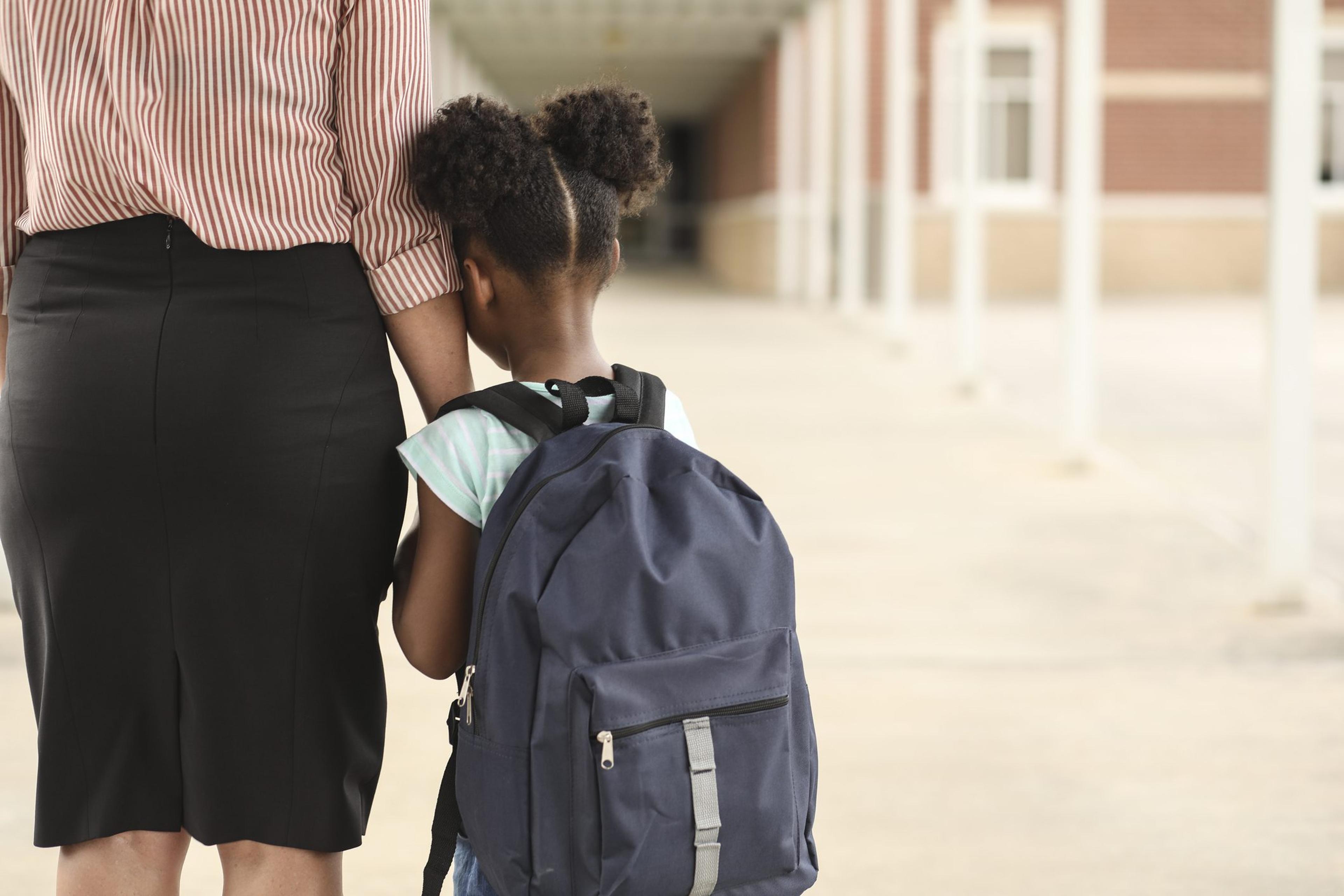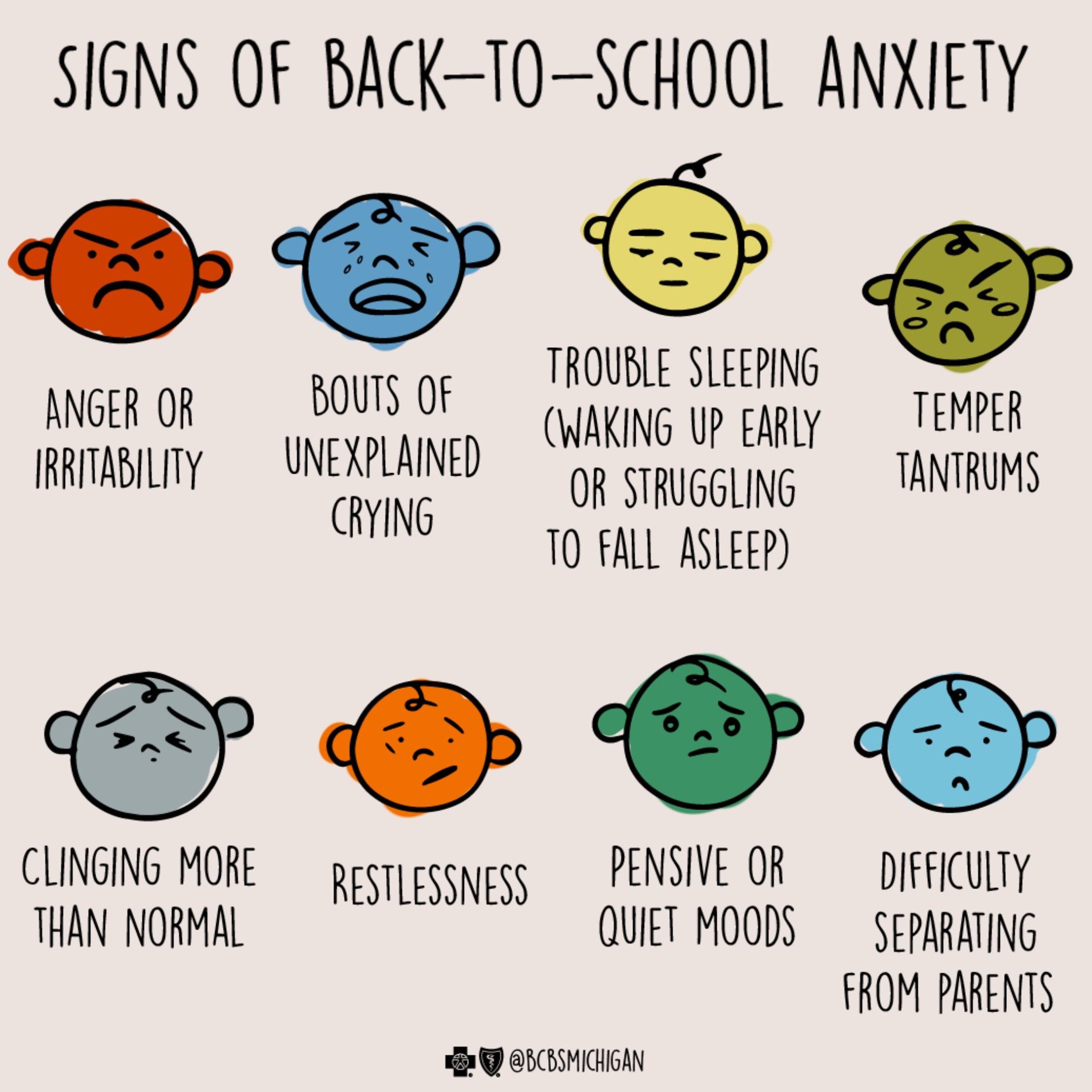Signs of Back-to-School Anxiety in Kids
Jake Newby
| 4 min read

You may remember feeling anxious as a kid when summer vacation started to wind down. As the new school year approaches, students all over the country might feel similarly.
Getting back into the classroom can be exciting for some children, but jitters and varying levels of anxiety are also common for kids ahead of the first day of school. Keep an eye out for signs and symptoms of anxiety so you can help mitigate those feelings in your child.

What are signs of back-to-school anxiety in kids?
Your children may behave differently in the days and weeks leading up to the new school year. They may even develop some physical symptoms. Here are signs to watch for:
- Anger or irritability
- Bouts of unexplained crying
- Clinging more than normal
- Difficulty separating from parents
- Pensive or quiet moods
- Restlessness
- Temper tantrums
- Trouble sleeping (waking up early or struggling to fall asleep)
Additionally, specific school-related worries are common, especially for kids heading into a transition year (starting middle school or entering a new district after a family move). Listening and discussing the new school year with your child can ease their concerns.
Tips to Ease Back-to-School Anxiety
Listen: If you do notice any of the above symptoms, carve out time to talk through your child’s worries. Kids respond differently to having difficult conversations. You can try the approach of broaching the subject casually in the car or during dinner, or approach it in a more private, one-on-one manner. Some of your child’s anxiety will likely be rooted in the unknown. They may wonder about their new teacher’s demeanor, whether they’ll make friends in their class and who they will sit with at lunch. Let them know that these are issues that usually resolve themselves quickly into the school year. It’s also possible that these anxious feelings persist into the first few weeks of the year, so being present is important. At least early on, try to be there when the school day ends, whether that be picking them up every day or being home when the bus drops them off. If they are receptive to it, discuss the highs and lows they’ve experienced since returning to school.
Get back into school-year routines: It’s natural for kids to cling to summer habits like playing video games late at night and sleeping in until the late morning. If they’re forced to pivot all at once, that could create feelings of anxiety. A couple of weeks before the new school year, start getting them acclimated to their school-year routine. This can include scaling back their bedtime, preparing breakfast and lunch at normal times and having them select the next day’s clothes before they go to sleep. You could even plan a shopping trip for school supplies and/or clothes and punctuate it with a reward – like ice cream – so they don’t associate the trip with negative or anxious feelings.
Do some test runs: It could help to give your child a lay of the land. Take them on a drive to the school so they become familiar with the route. If the school allows it, and they should, go inside and show your child their classroom. If possible, arrange for them to meet their teacher for the first time. Since their teacher may be one of their biggest wonders, it could be a major stress reliever for your child to get that part out of the way first, so they don’t have to do it in a crowded classroom with a hundred other things running through their minds.
Be positive: You’re probably feeling anxious, too, which is natural! Keep in mind that kids tend to take cues from their parents, so it’s helpful to appear confident, reassuring, and excited about the prospects of school. Remind them of the positives, like dressing up in their new swag and seeing old friends again. Maybe some of those feelings will rub off on them. If your child struggles mightily with anxiety or you feel like you could use some help, your Blue Cross Blue Shield of Michigan (BCBSM) plans have options to care for your kids’ mental health needs. BCBSM provides in-person support sessions for kids and adolescents. Find the right specialist for you or your family by giving one of these numbers a call:
- Blue Cross PPO: 1-800-762-2382
- Blue Care Network HMO: 1-800-482-5982
- Medicare Plus Blue PPO: 1-888-803-4960
- Blue Care Network Advantage HMO: 1-800-431-1059
Photo credit: Getty Images
More back-to-school content:





